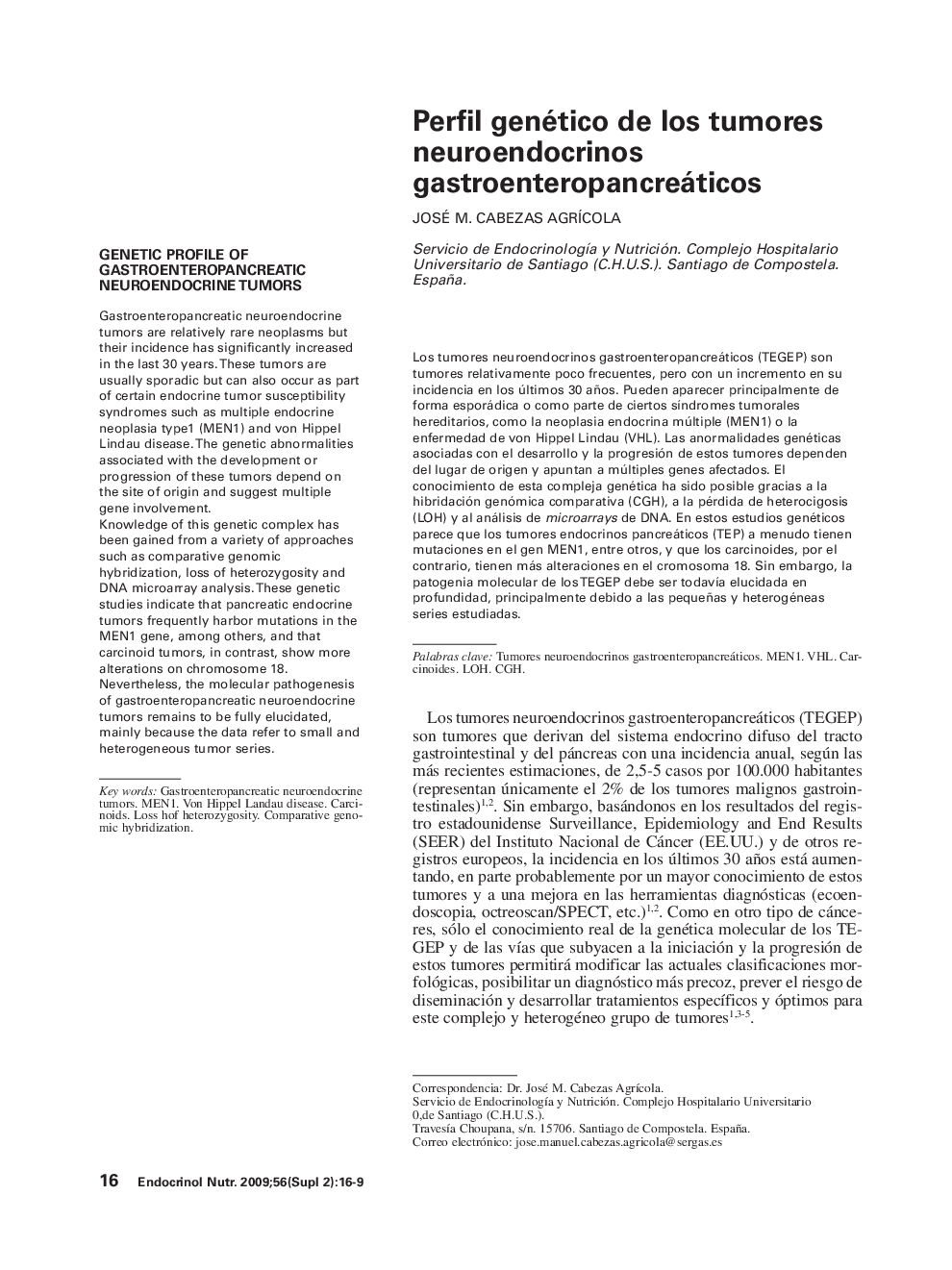| Article ID | Journal | Published Year | Pages | File Type |
|---|---|---|---|---|
| 2774359 | Endocrinología y Nutrición | 2009 | 4 Pages |
Los tumores neuroendocrinos gastroenteropancreáticos (TEGEP) son tumores relativamente poco frecuentes, pero con un incremento en su incidencia en los últimos 30 años. Pueden aparecer principalmente de forma esporádica o como parte de ciertos síndromes tumorales hereditarios, como la neoplasia endocrina múltiple (MEN1) o la enfermedad de von Hippel Lindau (VHL). Las anormalidades genéticas asociadas con el desarrollo y la progresión de estos tumores dependen del lugar de origen y apuntan a múltiples genes afectados. El conocimiento de esta compleja genética ha sido posible gracias a la hibridación genómica comparativa (CGH), a la pérdida de heterocigosis (LOH) y al análisis de microarrays de DNA. En estos estudios genéticos parece que los tumores endocrinos pancreáticos (TEP) a menudo tienen mutaciones en el gen MEN1, entre otros, y que los carcinoides, por el contrario, tienen más alteraciones en el cromosoma 18. Sin embargo, la patogenia molecular de los TEGEP debe ser todavía elucidada en profundidad, principalmente debido a las pequeñas y heterogéneas series estudiadas.
Gastroenteropancreatic neuroendocrine tumors are relatively rare neoplasms but their incidence has significantly increased in the last 30 years. These tumors are usually sporadic but can also occur as part of certain endocrine tumor susceptibility syndromes such as multiple endocrine neoplasia type1 (MEN1) and von Hippel Lindau disease. The genetic abnormalities associated with the development or progression of these tumors depend on the site of origin and suggest multiple gene involvement.Knowledge of this genetic complex has been gained from a variety of approaches such as comparative genomic hybridization, loss of heterozygosity and DNA microarray analysis. These genetic studies indicate that pancreatic endocrine tumors frequently harbor mutations in the MEN1 gene, among others, and that carcinoid tumors, in contrast, show more alterations on chromosome 18.Nevertheless, the molecular pathogenesis of gastroenteropancreatic neuroendocrine tumors remains to be fully elucidated, mainly because the data refer to small and heterogeneous tumor series.
